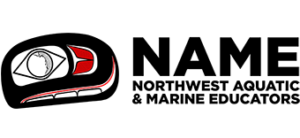Storming the Sound
Educating for the Environment
— ideas, problems, solutions and resources to restore our world —
Storming the Sound is a conference for environmental educators in the north Puget Sound region, including the counties of Whatcom, Skagit, Snohomish, Island, Jefferson and San Juan. Every January teachers, environmental organizations and students gather in La Conner to share their interest and expertise in environmental education.
Storming the Sound Conference 2024
Thursday, January 25th
This event will be in-person.
Now Accepting Presentation Submissions for 2024
The planning team is ready to receive your session proposals for this year’s Storming the Sound. Sessions will be 70 minutes, with plenty of time for discussion and reflection.
What excites you? What concerns you? What would you like to share or discuss?
This is your regional conference, centered around you, the participants. We’ll set up the space for discussion, thinking, inspiration and sharing. We’ll feed you wholesome, local food. We’ll move chairs and tables and displays. You’ll provide the ideas, issues, and excitement.
Want to talk about diversity, equity, inclusion, and justice? Excited about something you’ve learned this year? Interested in hearing what your colleagues are doing? Want to share music or art or poetry? Consider formats that avoid PowerPoint and focus on interaction and sharing.
Please send your session proposals to Chandler Colahan, with title, a short description, presenters’ names and affiliation, and AV needs.















































